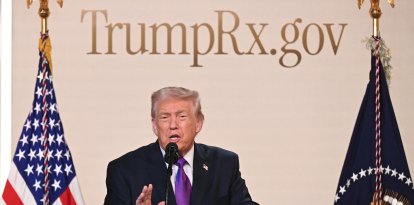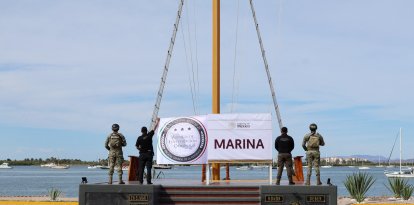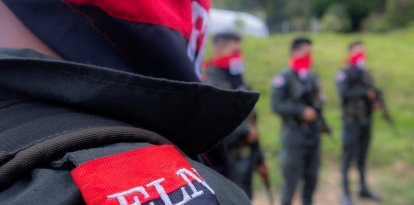The House of Representatives approves the 'Bolivar Act' to prevent federal agencies from doing business with the Maduro regime
Congressman Mike Waltz, Trump's future national security advisor, stressed that this law clearly sends a message to authoritarian regimes.

Argentine Justice spoke of "torture, kidnappings and executions" by Maduro and Cabello/ Rances Mattey.
This Monday, the House of Representatives approved HR 825, known as the "Bolivar Act," which prohibits federal agencies from doing business with any person or entity that maintains commercial relations with Nicolás Maduro's regime in Venezuela.
Congressmen Mike Waltz and Debbie Wasserman Schultz pushed the measure, which represents a new effort to isolate the regime internationally and limit its funding sources.
One more step towards isolation
The Bolivar Act complements sanctions previously imposed on the Maduro regime and seeks to dismantle the funding sources that allow the dictator to remain in power. By prohibiting federal agencies from contracting with individuals or companies that collaborate with the Maduro regime, this legislation further closes off the channels through which it has financed its authoritarian control, including human rights violations and political repression.
Congresswoman Maria Elvira Salazar, who backed the bill, celebrated the law's passage on her X account, highlighting its impact on cutting off the "financial lifelines" that sustain the regime. "The legislation cuts off an additional financial lifeline for the Maduro regime's repressive apparatus," said Salazar, who also highlighted U.S. backing for the Venezuelan opposition and President-elect Edmundo González Urrutia.
Humanitarian approach
Congressman Mike Waltz, future advisor to Trump's national security, stressed that this law is a clear message to authoritarian regimes, not only in Venezuela but globally. "Our policy must be based on solidarity with the brave activists that strive to break the shackles of oppression," said Waltz, who also stressed that the law has a humanitarian component by strengthening the U.S. commitment to protecting human rights in Venezuela.
For his part, Wasserman Schultz expressed his satisfaction with the passage of the law and recalled that, although the United States has taken steps to sanction the regime, it is essential to shut down the corporate support networks that enable Maduro's corruption. "This bipartisan legislation that will cut off Maduro's support network and send the clear message that Americans will not tolerate anti-democratic repression," the congresswoman said.
Next steps
With its passage in the House of Representatives, the Bolivar Act now moves to the Senate, where it is expected to be considered soon. Waltz urged senators to act quickly so that the bill can be sent to President Joe Biden for his signature and entry into force. In their press release, both Waltz and Wasserman Schultz emphasized the importance of continuing to put pressure on the Maduro regime and ensuring that no further human rights violations are tolerated in Venezuela.
This legislation also has important implications for U.S. federal agencies, as it prohibits these entities from contracting with companies operating in Venezuela under Maduro's control. There are some exceptions, such as in the case of contracts related to humanitarian assistance and disaster relief.
The Bolivar Act, if passed in the Senate, could have a significant impact on the resources available to the Maduro regime, while sending a clear message that the United States remains committed to the fight for democracy and human rights in Venezuela.

























